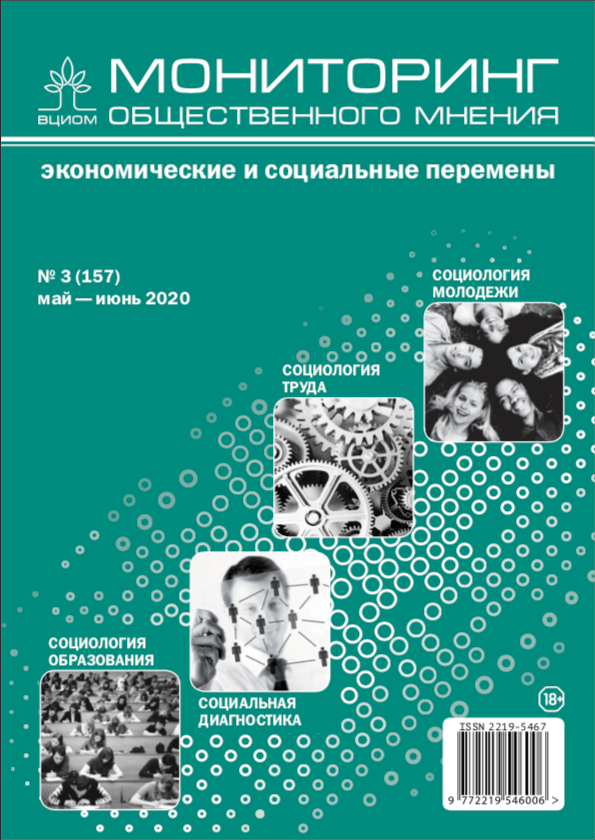Интерпретации взросления и формирование образовательных траекторий
DOI:
https://doi.org/10.14515/monitoring.2020.3.1604Ключевые слова:
взросление, социальное неравенство, интерпретативная социология, социология молодёжиАннотация
Большая доля исследований молодежи посвящена тому, как молодежь достигает (или не достигает) взрослости. Критерием взрослости могут выступать различные параметры, например, в исследованиях жизненного курса образцом «взросления» (transition to adulthood) стал паттерн, заданный поколением «бэби-бумеров», сформировавшийся в 1950-1960-е годы, когда уже к 25 годам около половины юношей поколения успевали в строгом порядке получить образование, найти стабильную работу, создать семью и завести детей. Сегодня же все больше говорят о дестандартизации взросления, о том, что многие из этих принятых как стандартные критериев взросления теряют актуальность по мере того, как растет число прекариальных профессий, образование из жизненного этапа становится постоянной деятельностью, а от создания семьи и рождения детей все чаще и вовсе отказываются. Однако взросление не одинаково для всей молодежи, исследователи говорят о «быстром треке» взросления, характерном для молодежи рабочего класса, и об «отложенном взрослении», характерном для молодежи среднего и выше среднего класса, продлевающей время пребывания в системе образования. На фоне этих тенденций приобретает актуальность изучение того, как современная молодежь представляет взросление и как молодые люди и девушки к нему стремятся. В данной работе мы описываем, какие интерпретации взросления конструирует молодежь, какие символические различения в них присутствуют и как различаются интерпретации взросления в зависимости от образовательного трека (СПО или вуз) и от уровня образования родителей.
Благодарность. В работе использованы результаты проекта «Траектории в образовании и профессии», выполненного в рамках Программы фундаментальных исследований НИУ ВШЭ в 2019 г.
Загрузки
Опубликован
Как цитировать
Выпуск
Раздел
Лицензия
Copyright (c) 2020 Мониторинг общественного мнения: экономические и социальные перемены

Это произведение доступно по лицензии Creative Commons «Attribution-NonCommercial-ShareAlike» («Атрибуция — Некоммерческое использование — На тех же условиях») 4.0 Всемирная.






